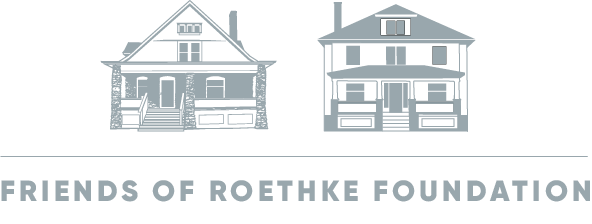April 26, 2022 • SPEAKER SERIES • Diane Seuss – From Muck We Came, and to Muck We Shall Return: The Midwest, Father-Loss, and Theodore Roethke
In Diane Seuss’s own early education as a poet, Theodore Roethke was the first writer whose images and obsessions felt powerfully familiar to her, from the details derived from the Michigan landscape—“A slow drip over stones, / Toads brooding wells…Snail, snail, glister me forward, / Bird, soft-sigh me home”—to the shared “old wound” of early father-loss. Seuss will explore the connections between Roethke’s poems—especially those in The Lost Son, and Other Poems—and his Michigan childhood, the complex loss at the heart of his work, the seasonal shape of his psychological and spiritual journeying, and the details of landscape, greenhouse, and root cellar that supplied him with his core images and poetic purposes. She will also consider the permissions Roethke’s work provided her, and the mucky, Midwestern source of her own imagination.
About Diane Seuss:
Diane Seuss is the author of five books of poetry. Her most recent collection is frank: sonnets (Graywolf Press, 2021), a finalist for the PEN/ Voelcker Prize, the Los Angeles Times Book Prize, and the National Book Critics Circle Award. Still Life with Two Dead Peacocks and a Girl, (Graywolf Press 2018) was a finalist for the National Book Critics Circle Award and the Los Angeles Times Book Prize. Four-Legged Girl (Graywolf Press, 2015) was a finalist for the Pulitzer Prize. Seuss is a 2020 Guggenheim Fellow. She received the John Updike Award from the American Academy of Arts and Letters in 2021, and was a finalist for the 2022 Kingsley Tufts Poetry Award, Claremont Graduate University. Seuss has taught in several creative writing programs, including as a visiting professor at Colorado College, the University of Michigan, and Washington University in St. Louis. She was raised by a single mother in rural Michigan, which she continues to call home.
Thanks to generous support from the Ohio Arts Council, Arts Midwest, and the National Endowment for the Arts, our Speaker Series is free through May 31, 2022.
In Diane Seuss’s own early education as a poet, Theodore Roethke was the first writer whose images and obsessions felt powerfully familiar to her, from the details derived from the Michigan landscape—“A slow drip over stones, / Toads brooding wells…Snail, snail, glister me forward, / Bird, soft-sigh me home”—to the shared “old wound” of early father-loss. Seuss will explore the connections between Roethke’s poems—especially those in The Lost Son, and Other Poems—and his Michigan childhood, the complex loss at the heart of his work, the seasonal shape of his psychological and spiritual journeying, and the details of landscape, greenhouse, and root cellar that supplied him with his core images and poetic purposes. She will also consider the permissions Roethke’s work provided her, and the mucky, Midwestern source of her own imagination.
About Diane Seuss:
Diane Seuss is the author of five books of poetry. Her most recent collection is frank: sonnets (Graywolf Press, 2021), a finalist for the PEN/ Voelcker Prize, the Los Angeles Times Book Prize, and the National Book Critics Circle Award. Still Life with Two Dead Peacocks and a Girl, (Graywolf Press 2018) was a finalist for the National Book Critics Circle Award and the Los Angeles Times Book Prize. Four-Legged Girl (Graywolf Press, 2015) was a finalist for the Pulitzer Prize. Seuss is a 2020 Guggenheim Fellow. She received the John Updike Award from the American Academy of Arts and Letters in 2021, and was a finalist for the 2022 Kingsley Tufts Poetry Award, Claremont Graduate University. Seuss has taught in several creative writing programs, including as a visiting professor at Colorado College, the University of Michigan, and Washington University in St. Louis. She was raised by a single mother in rural Michigan, which she continues to call home.
Thanks to generous support from the Ohio Arts Council, Arts Midwest, and the National Endowment for the Arts, our Speaker Series is free through May 31, 2022.
In Diane Seuss’s own early education as a poet, Theodore Roethke was the first writer whose images and obsessions felt powerfully familiar to her, from the details derived from the Michigan landscape—“A slow drip over stones, / Toads brooding wells…Snail, snail, glister me forward, / Bird, soft-sigh me home”—to the shared “old wound” of early father-loss. Seuss will explore the connections between Roethke’s poems—especially those in The Lost Son, and Other Poems—and his Michigan childhood, the complex loss at the heart of his work, the seasonal shape of his psychological and spiritual journeying, and the details of landscape, greenhouse, and root cellar that supplied him with his core images and poetic purposes. She will also consider the permissions Roethke’s work provided her, and the mucky, Midwestern source of her own imagination.
About Diane Seuss:
Diane Seuss is the author of five books of poetry. Her most recent collection is frank: sonnets (Graywolf Press, 2021), a finalist for the PEN/ Voelcker Prize, the Los Angeles Times Book Prize, and the National Book Critics Circle Award. Still Life with Two Dead Peacocks and a Girl, (Graywolf Press 2018) was a finalist for the National Book Critics Circle Award and the Los Angeles Times Book Prize. Four-Legged Girl (Graywolf Press, 2015) was a finalist for the Pulitzer Prize. Seuss is a 2020 Guggenheim Fellow. She received the John Updike Award from the American Academy of Arts and Letters in 2021, and was a finalist for the 2022 Kingsley Tufts Poetry Award, Claremont Graduate University. Seuss has taught in several creative writing programs, including as a visiting professor at Colorado College, the University of Michigan, and Washington University in St. Louis. She was raised by a single mother in rural Michigan, which she continues to call home.
Thanks to generous support from the Ohio Arts Council, Arts Midwest, and the National Endowment for the Arts, our Speaker Series is free through May 31, 2022.


